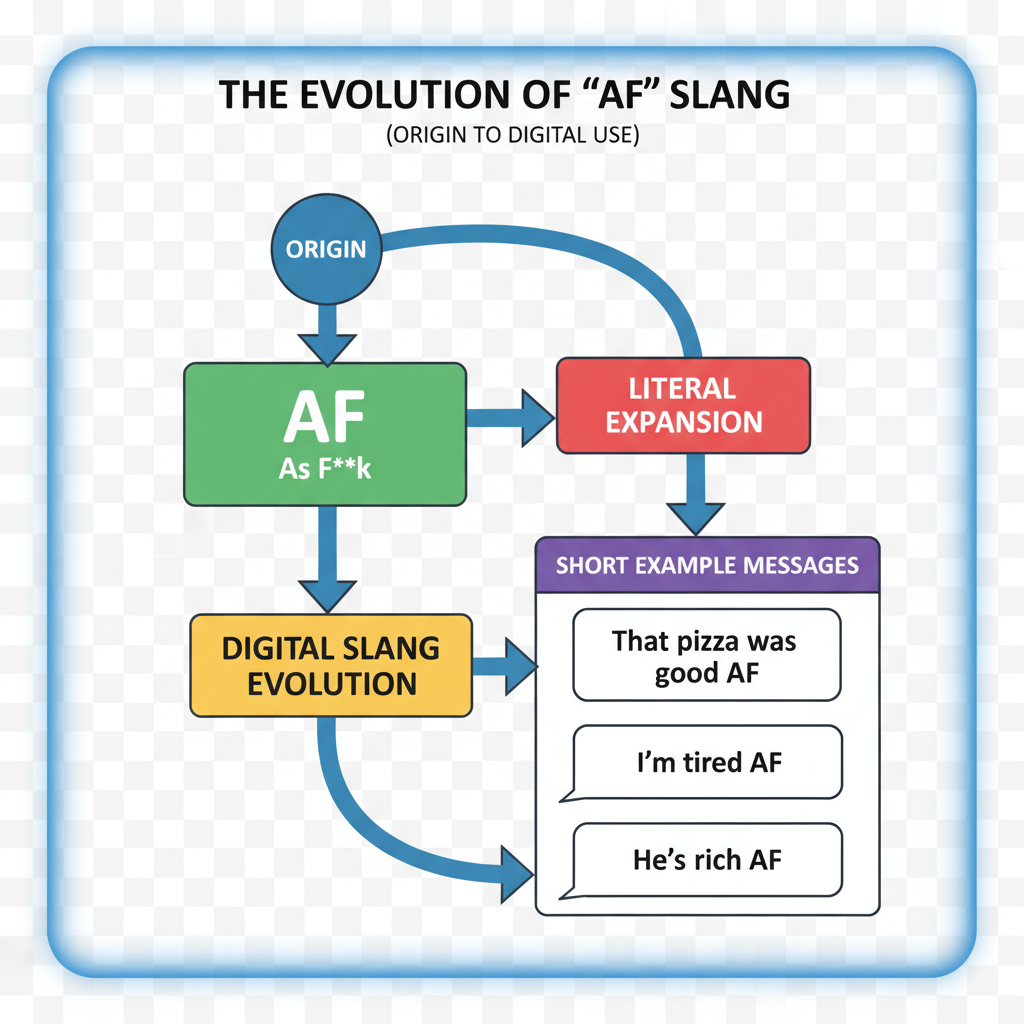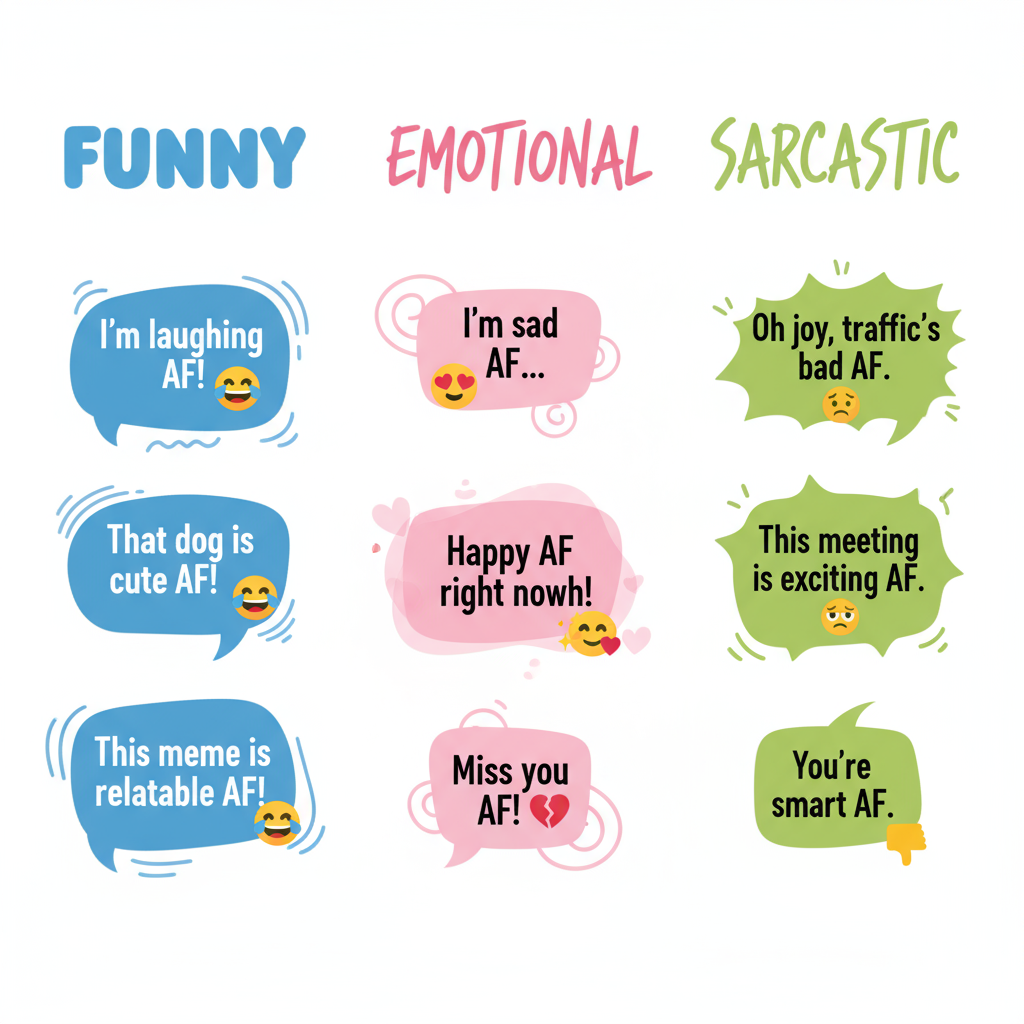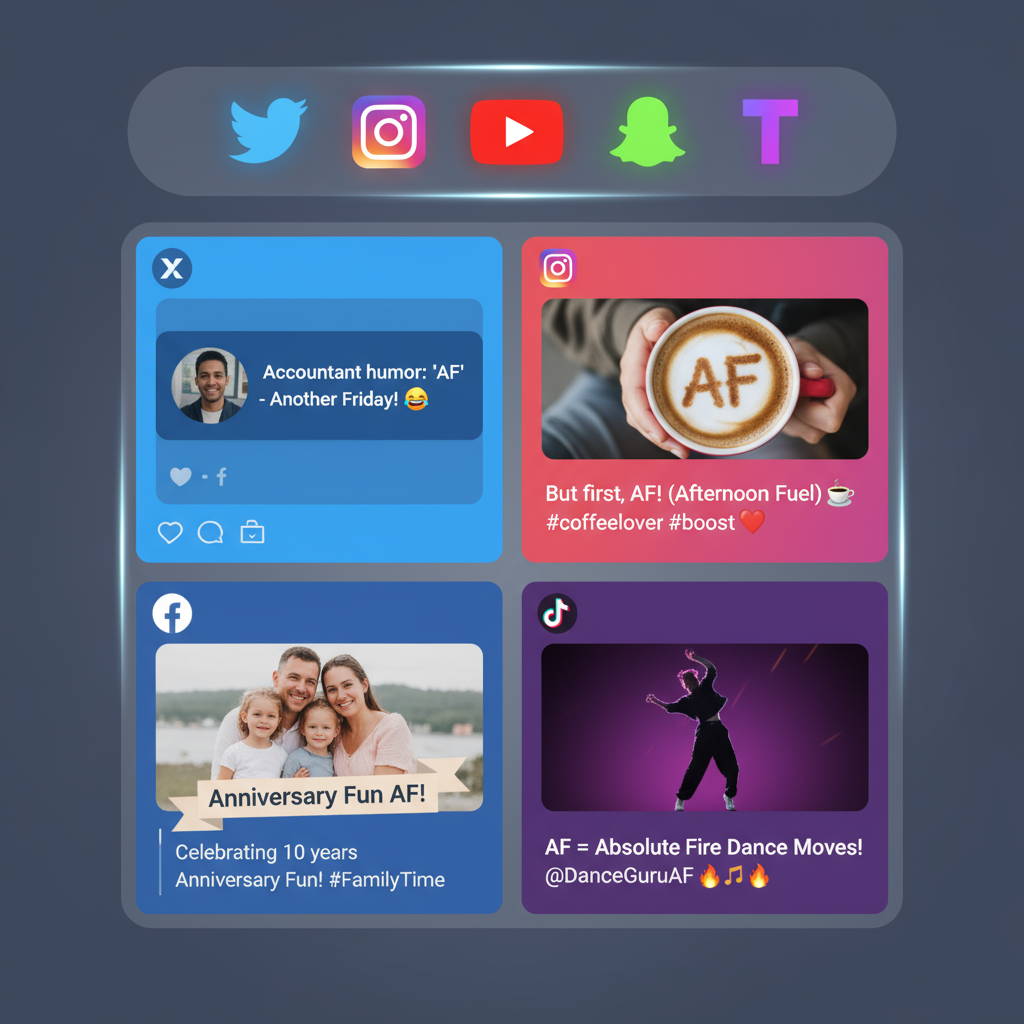What Does "AF" Mean on Social Media? A Complete Guide
Learn what "AF" means in social media slang, its origins, usage examples, and platform-specific context to communicate effectively online.

Introduction: Understanding "AF" in Internet Slang
The rise of social media and instant messaging has transformed everyday language, embedding internet slang into global communication. Among these abbreviations, “AF” stands out as a popular intensifier used across platforms like Twitter, TikTok, Instagram, and Snapchat. You might come across phrases such as “I’m tired AF” or “That party was fun AF”, but what exactly does AF mean online, and how should you use it appropriately?
This guide breaks down the meaning of AF, explores its origins, offers usage examples, examines generational differences, and provides tips so you can confidently use it—or understand it—without being AF awkward.

---
Origin of the Abbreviation "AF" and Its General Meaning
The term “AF” is shorthand for “as f*”, a direct and emphatic way to intensify an adjective or express an extreme feeling. Linguistically, it works much like “very” or “extremely,” but with a sharper, slang-driven edge that carries a casual or irreverent tone.
- Early Usage: Originated from spoken English long before the internet, often for emphasis.
- Online Boost: Shorthand became common with SMS, chat rooms, and early social networks to save characters.
- Mainstream Adoption: Meme culture and Twitter’s (X) brevity helped AF go from niche slang to a standard element of online exaggeration.
---
How "AF" Functions in Digital Conversations
“AF” serves as an intensifier paired with emotional cues, typically appearing after adjectives:
- Post-adjective emphasis: “This coffee is hot AF.”
- Comedic exaggeration: “I’m broke AF until Friday.”
- Relatable humor: “Me AF” paired with a meme or GIF.
Its appeal lies in its brevity and punch, making it effective in casual peer-to-peer exchanges.

---
Examples of "AF" Across Different Sentiments
Because of its flexibility, AF can shift tone depending on context:
Funny
- That episode was weird AF, but I loved it.
- My dog is dramatic AF when I leave the house.
Emotional
- I’m nervous AF before big meetings.
- Feeling lonely AF tonight.
Sarcastic
- Oh, perfect—my phone’s dead AF right when I needed it.
- This traffic is fast AF… not.
---
Social Media Platforms Where "AF" Thrives
“AF” flourishes on platforms designed for casual, short-form sharing.
| Platform | Why AF Is Common |
|---|---|
| Twitter / X | Short character limits promote compact slang and punchy expressions |
| TikTok | Meme-heavy captions and trends align with AF’s casual style |
| Captions, Reels, and Stories use AF to heighten dramatic flair | |
| Snapchat | Direct messaging and quick snaps encourage slang-driven interactions |
| Common in humorous or lifestyle-focused subreddits |
---
Generational Perspectives on "AF"
Slang adoption often varies by age group:
- Gen Z: Uses AF instinctively in memes, captions, and text threads.
- Millennials: Familiar and comfortable using AF but may apply it more selectively.
- Gen X & Boomers: Less likely to use AF; may require context or explanation.
Brands communicating to mixed-age audiences must recognize that slang like AF can connect with some users while alienating others.
---
Other Intensifiers Similar to "AF"
While AF is widespread, several alternatives convey similar emphasis:
- Hella: “It’s hella windy today.”
- So: “That’s so cute.”
- Fr (for real): “That was scary fr.”
- Super: “Super excited for the weekend.”
The right choice depends on audience, context, and desired tone.
---
When AF Is Best Left Out
AF may feel natural online, but there are contexts where it’s unprofessional or inappropriate.
Avoid AF in:
- Work communications: Emails, reports, professional chats.
- Public marketing unless brand voice embraces edgy humor.
- Formal or sensitive topics where strong language could offend.
- Settings with diverse audiences unfamiliar with slang.
---
How Slang Like AF Shapes Online Culture
Slang terms such as AF influence digital tone and identity by:
- Establishing relatability through shared inside language.
- Allowing quick emotional amplification in limited-character settings.
- Acting as a badge of belonging in internet subcultures.
However, trends evolve fast—overuse can make a phrase feel dated, especially when adopted beyond its natural user base.

---
Tips for Using "AF" Comfortably and Effectively
To integrate AF without overdoing it:
- Use sparingly to keep it impactful.
- Adapt to platform voice—great on TikTok, awkward on LinkedIn.
- Consider audience familiarity before dropping slang.
- Experiment with alternatives if AF feels too edgy.
- Stay trend-aware to avoid sounding outdated.
---
Conclusion: Staying Fluent in Digital Slang
Understanding what AF means on social media is more than a vocabulary lesson—it’s about knowing when and how to use it for maximum effect while respecting context.
Used strategically, AF can inject humor, relatability, and emphasis into online interactions. Used carelessly, it risks misunderstanding or offense. Because online language evolves rapidly, a balanced approach helps you stay current AF without trying too hard.
Keep your digital tone intentional, audience-aware, and adaptable. In the fast-moving world of internet slang, that’s how you stay fluent—and relevant.
---



